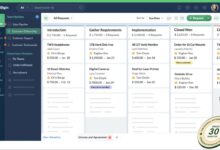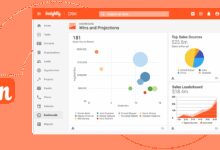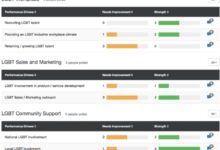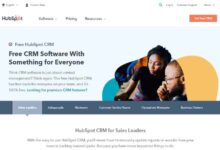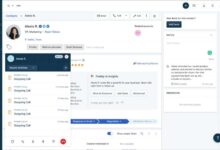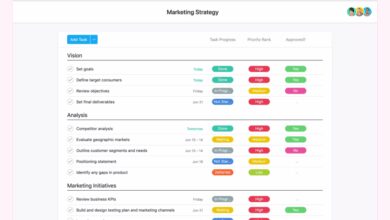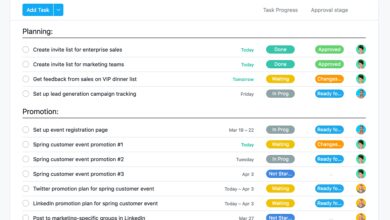Best CRM Systems for Small Business: 7 Ultimate Power Tools
Looking for the best CRM systems for small business? You’re not alone. With so many options, choosing the right one can feel overwhelming — but it doesn’t have to be. Let’s break down the top platforms that actually deliver results.
Why the Best CRM Systems for Small Business Matter

Customer Relationship Management (CRM) tools are no longer exclusive to large enterprises. For small businesses, a solid CRM can be the difference between chaotic spreadsheets and streamlined growth. These systems centralize customer data, automate follow-ups, and improve sales forecasting — all critical for scaling efficiently.
What Is a CRM and How Does It Help?
A CRM is software that helps businesses manage interactions with current and potential customers. It tracks every touchpoint — from initial contact to post-sale support — in one unified platform. For small teams, this means less time chasing emails and more time closing deals.
- Centralizes customer data (names, emails, purchase history)
- Automates repetitive tasks like email follow-ups
- Tracks sales pipelines and forecasts revenue
- Improves customer service with quick access to history
“A CRM isn’t just a database — it’s your business’s memory.” — HubSpot
Key Benefits for Small Businesses
Small businesses operate with limited resources, so efficiency is key. The best CRM systems for small business offer:
- Improved customer retention: Personalized communication keeps clients coming back.
- Higher sales conversion: Sales teams can prioritize hot leads and reduce response time.
- Team collaboration: Shared access ensures everyone is on the same page.
- Data-driven decisions: Real-time reports help identify trends and bottlenecks.
According to Salesforce, companies using CRM see a 41% increase in revenue within the first year.
Top 7 Best CRM Systems for Small Business in 2024
After extensive testing and user feedback analysis, we’ve narrowed down the top seven CRM platforms that deliver exceptional value, ease of use, and scalability for small businesses.
1. HubSpot CRM
HubSpot CRM is often hailed as the best CRM systems for small business due to its powerful free tier and seamless integration with marketing tools. It’s intuitive, feature-rich, and perfect for startups and growing teams.
- Free forever plan: Includes contact management, email tracking, and deal pipelines.
- Email scheduling: Send emails directly from the CRM with read receipts.
- Integration ecosystem: Connects with over 1,000 apps including Gmail, Slack, and Shopify.
HubSpot’s visual pipeline makes it easy to track deals, and its automation workflows reduce manual data entry. For businesses planning to scale, HubSpot offers paid tiers with advanced marketing and sales features.
Learn more at HubSpot CRM.
2. Zoho CRM
Zoho CRM stands out as one of the best CRM systems for small business owners who want deep customization without complexity. It’s particularly strong for sales automation and AI-powered insights.
- Zia AI assistant: Predicts deal closures and suggests next steps.
- Customizable dashboards: Tailor views to your team’s needs.
- Multi-channel communication: Manage email, phone, and social media from one place.
Zoho CRM also offers a free plan for up to three users, making it ideal for solopreneurs or micro-teams. Its paid plans are competitively priced, starting at just $14/user/month.
Explore Zoho CRM at Zoho CRM.
3. Salesforce Essentials
Salesforce, the industry giant, offers Salesforce Essentials — a simplified version designed specifically for small businesses. It’s one of the best CRM systems for small business teams that anticipate rapid growth.
- Mobile-first design: Full functionality on iOS and Android.
- Pre-built workflows: Automate lead assignment and follow-ups.
- Integration with G Suite and Microsoft 365: Sync calendars and emails effortlessly.
While more expensive than some competitors, Salesforce Essentials provides enterprise-grade security and scalability. It’s a smart long-term investment for businesses aiming to expand.
Visit Salesforce Essentials for details.
4. Freshsales (by Freshworks)
Freshsales is a rising star among the best CRM systems for small business users who value speed and simplicity. It’s known for its clean interface and built-in phone and email capabilities.
- AI-based lead scoring: Automatically ranks leads by conversion likelihood.
- Click-to-call: Make calls directly from the CRM.
- Visual deal pipeline: Drag-and-drop interface for managing deals.
Freshsales also offers a free plan with up to 10 users, which includes essential CRM features. Paid plans start at $15/user/month and include advanced reporting and automation.
Check it out at Freshsales CRM.
5. Pipedrive
Pipedrive is built for sales-focused small businesses. Its visual sales pipeline is one of the most intuitive in the industry, making it a favorite among startups and solo entrepreneurs.
- Pipeline-centric design: Focuses on moving deals forward.
- Activity reminders: Never miss a follow-up with automated alerts.
- Integration with 400+ tools: Includes Mailchimp, Slack, and Zapier.
Pipedrive’s strength lies in its simplicity. It doesn’t overwhelm users with features but delivers exactly what sales teams need. It’s also highly customizable with automation and reporting tools.
Learn more at Pipedrive.
6. Insightly
Insightly is ideal for small businesses that need project management alongside CRM. It bridges the gap between customer data and task execution, making it one of the best CRM systems for small business teams juggling multiple responsibilities.
- Project and task management: Assign tasks and track deadlines within the CRM.
- Customer journey tracking: Map interactions across multiple touchpoints.
- Workflow automation: Reduce manual work with rule-based triggers.
Insightly supports up to 2,000 contacts on its free plan and offers robust API access for developers. Paid plans start at $29/user/month, making it pricier but packed with features.
Visit Insightly for more.
7. Agile CRM
Agile CRM combines CRM, marketing automation, and helpdesk features into one affordable package. It’s a strong contender among the best CRM systems for small business owners who want an all-in-one solution.
- Free plan for up to 10 users: Includes contact management, email campaigns, and telephony.
- Website tracking: See which pages visitors view before contacting you.
- Helpdesk ticketing: Manage customer support requests in one place.
While the interface feels slightly dated compared to others, Agile CRM delivers exceptional value for the price. It’s perfect for service-based businesses like consultants, agencies, and freelancers.
Explore Agile CRM at Agile CRM.
Key Features to Look for in the Best CRM Systems for Small Business
Not all CRMs are created equal. When evaluating options, focus on features that align with your business goals and team size.
User-Friendly Interface
A CRM should simplify work, not complicate it. Look for platforms with intuitive navigation, drag-and-drop functionality, and minimal learning curve. HubSpot and Pipedrive excel here, offering clean dashboards that new users can master in minutes.
Tip: Take advantage of free trials to test usability before committing.
Automation Capabilities
Automation saves time and reduces human error. The best CRM systems for small business include features like:
- Email follow-up sequences
- Lead assignment rules
- Task reminders and notifications
- Data syncing across platforms
For example, Zoho CRM’s Zia AI can automatically log calls and suggest follow-up actions, while Freshsales automates lead scoring based on engagement.
Mobile Accessibility
Small business owners are often on the move. A mobile-friendly CRM ensures you can update deals, contact clients, and check reports from anywhere. Salesforce Essentials and Pipedrive offer robust mobile apps with offline access and voice-to-text note-taking.
Ensure the CRM you choose has a dedicated app available on both iOS and Android.
Integration with Other Tools
Your CRM shouldn’t exist in isolation. The best CRM systems for small business integrate seamlessly with tools you already use.
Email and Calendar Sync
Syncing with Gmail or Outlook is essential. It allows you to log emails, schedule meetings, and track communication without switching apps. HubSpot and Zoho CRM offer two-way sync, ensuring your calendar and CRM stay in perfect harmony.
Marketing and Sales Tools
Integration with platforms like Mailchimp, Facebook Ads, or Google Workspace enhances your outreach. For instance, HubSpot CRM integrates with its own marketing hub to create targeted email campaigns based on CRM data.
- Use Zapier to connect CRMs with 5,000+ apps
- Sync Shopify data to track customer purchases
- Integrate with Zoom for automatic meeting logging
Payment and Invoicing Systems
For service-based businesses, linking your CRM to invoicing tools like QuickBooks or Stripe streamlines billing. Insightly and Agile CRM support these integrations, allowing you to create invoices directly from deal records.
According to Capterra, 68% of small businesses prioritize CRM integration with financial tools.
Pricing Comparison of the Best CRM Systems for Small Business
Budget is a major factor when choosing a CRM. Here’s a breakdown of pricing for the top platforms:
Free Plans and Entry-Level Tiers
Many of the best CRM systems for small business offer free plans, which are perfect for startups testing the waters.
- HubSpot CRM: Free forever (unlimited users, core features)
- Zoho CRM: Free for up to 3 users
- Freshsales: Free for up to 10 users
- Agile CRM: Free for up to 10 users
These free versions often include contact management, deal tracking, and basic automation — more than enough for early-stage businesses.
Paid Plans and Scalability
As your business grows, you’ll likely need advanced features. Here’s a comparison of starting prices for paid plans:
- HubSpot CRM: $20/month (Starter)
- Zoho CRM: $14/user/month
- Freshsales: $15/user/month
- Pipedrive: $14.90/user/month
- Salesforce Essentials: $25/user/month
- Insightly: $29/user/month
- Agile CRM: $47.99/user/month (Premium)
Most platforms offer discounts for annual billing and tiered pricing based on features. Always check for hidden costs like training, onboarding, or API usage.
Hidden Costs to Watch For
Some CRMs advertise low prices but charge extra for:
- Phone support
- Advanced reporting
- Customization options
- Additional storage
For example, while Agile CRM’s free plan is generous, its premium plan jumps significantly in price. Always read the fine print before upgrading.
How to Choose the Best CRM Systems for Small Business
Selecting the right CRM isn’t just about features — it’s about fit. Follow these steps to make a smart decision.
Assess Your Business Needs
Start by identifying your pain points. Are you losing leads? Struggling with follow-ups? Need better reporting? Define your goals before comparing tools. A sales-heavy business might prefer Pipedrive, while a marketing-driven agency may lean toward HubSpot.
Involve Your Team
The best CRM systems for small business are only effective if your team uses them. Get input from sales, marketing, and customer service staff. Conduct a trial with 2-3 top contenders and gather feedback on usability and workflow fit.
Test Before You Commit
Most CRMs offer free trials or freemium models. Use this time to:
- Import sample customer data
- Set up automation rules
- Test mobile access
- Check integration compatibility
HubSpot and Zoho CRM, for example, allow full access during trials, giving you a real feel for performance.
Common Mistakes to Avoid When Implementing a CRM
Even the best CRM systems for small business can fail if implemented poorly. Avoid these common pitfalls.
Poor Data Migration
Transferring data from spreadsheets or old systems can lead to duplicates, missing fields, or formatting errors. Always clean your data before importing. Use CSV templates provided by the CRM and validate a small batch first.
Lack of Training
Without proper onboarding, teams may resist using the CRM. Invest time in training sessions, create internal guides, and assign a CRM champion to answer questions.
Over-Customization
While customization is powerful, overdoing it can make the system clunky. Start with default settings and gradually add fields or workflows as needed. Pipedrive and Freshsales are great for keeping things simple.
Future Trends in CRM for Small Businesses
The best CRM systems for small business are evolving fast. Stay ahead by understanding emerging trends.
AI and Predictive Analytics
AI is no longer just for big corporations. Zoho’s Zia and HubSpot’s AI tools now offer predictive lead scoring, email suggestions, and sentiment analysis — all accessible to small teams.
Remote Work Integration
With hybrid work here to stay, CRMs are integrating with Slack, Zoom, and Microsoft Teams. Salesforce and HubSpot now allow logging calls and meetings directly from video conferencing apps.
Customer Experience Focus
Modern CRMs are shifting from sales tracking to full customer experience management. Features like feedback surveys, support ticketing, and journey mapping are becoming standard, as seen in Agile CRM and Insightly.
What is the best CRM for a small business just starting out?
For startups, HubSpot CRM is often the best choice due to its free plan, ease of use, and strong integration ecosystem. It’s perfect for businesses that want to grow without upfront costs.
Can I use a CRM on my phone?
Yes, all the best CRM systems for small business offer mobile apps. Salesforce, Pipedrive, and HubSpot have highly rated iOS and Android apps with full functionality, including offline access.
Do I need to pay for a CRM?
Not necessarily. Many top CRMs like HubSpot, Zoho, and Freshsales offer robust free plans. You only need to pay if you require advanced features like automation, custom reporting, or more users.
How long does it take to set up a CRM?
Setup time varies, but most small businesses can get a basic CRM running in 1-3 days. Importing data and training the team may take an additional week. Platforms like Pipedrive and Freshsales are known for quick onboarding.
Will a CRM help me close more deals?
Absolutely. The best CRM systems for small business improve lead tracking, automate follow-ups, and provide insights into sales performance — all of which increase conversion rates. Studies show CRM users see up to a 29% increase in sales.
Choosing the best CRM systems for small business doesn’t have to be complicated. By understanding your needs, testing top platforms, and avoiding common mistakes, you can find a solution that drives growth and efficiency. Whether you go with HubSpot’s free power, Zoho’s AI smarts, or Pipedrive’s sales focus, the right CRM will become your most valuable business tool. Start small, scale smart, and let your CRM do the heavy lifting.
best crm systems for small business – Best crm systems for small business menjadi aspek penting yang dibahas di sini.
Further Reading:

